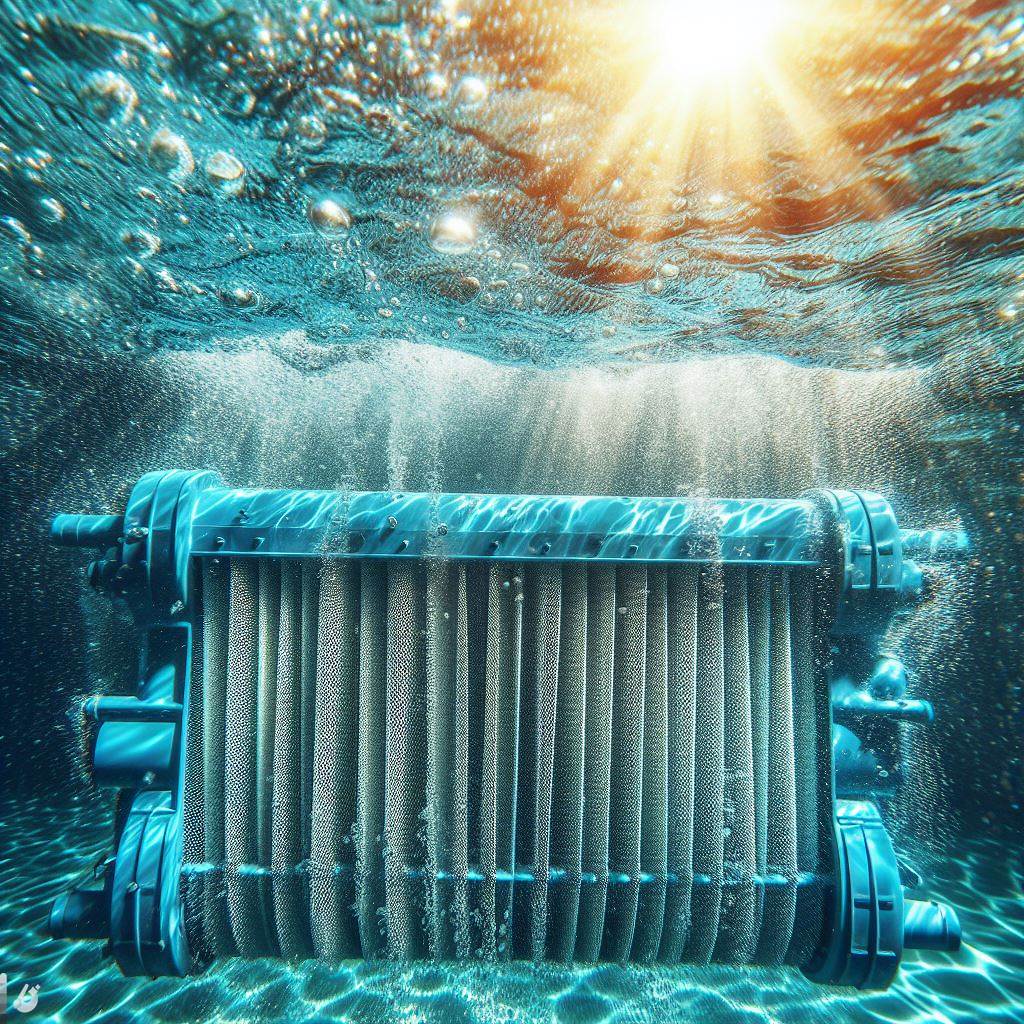The soothing ambiance of a swimming pool can be quickly disrupted when the pool sand filter introduces unwanted noise. A noisy pool filter can be not only annoying but also indicative of potential issues. In this article, we’ll explore the common reasons behind pool sand filter noise and provide comprehensive solutions to restore tranquility to your aquatic oasis.

Understanding Pool Sand Filters
Pool sand filters play a crucial role in keeping pool water clean by trapping impurities and debris. They operate by passing water through a bed of sand, where particles are filtered out. However, over time, issues may arise that lead to disruptive noise.
Common Causes of Pool Sand Filter Noise
Air Entrapment
Air can become trapped in the filter system, creating a bubbling or gurgling noise.
This is often a result of insufficient water flow or air leaks in the system.
Clogged or Dirty Sand
Accumulated debris and contaminants in the sand bed can restrict water flow.
The increased pressure and turbulence can lead to noise issues as water struggles to pass through.
Worn or Faulty Bearings
Over time, the bearings supporting the filter’s moving parts may wear out or become faulty.
This can result in grinding or squeaking noises during operation.
Loose or Misaligned Components
Loose bolts, nuts, or misaligned components can generate rattling or clanking sounds.
Vibrations from the filter’s operation may exacerbate these issues.
Solutions to Common Noise Problems
Air Entrapment
Ensure proper water flow by checking for clogs in skimmer baskets and pump strainer.
Inspect the pool water level to ensure it’s above the skimmer opening.
Seal any air leaks in the plumbing system using pool-safe sealants.
Clogged or Dirty Sand
Backwash the filter to remove accumulated debris and contaminants.
Consider deep cleaning the sand bed or replacing the sand if it’s old and ineffective.
Regularly maintain the pool area to minimize debris entering the pool.
Worn or Faulty Bearings
Schedule regular inspections and lubricate bearings as per the manufacturer’s guidelines.
Replace worn-out bearings promptly to prevent further damage.
Consider upgrading to high-quality, long-lasting bearings for extended durability.
Loose or Misaligned Components
Conduct a visual inspection of all filter components for loose bolts or misalignments.
Tighten any loose components and realign parts to ensure a secure fit.
Use vibration-absorbing materials or pads to minimize vibrations and noise.
Advanced Noise Reduction Techniques
For pool owners seeking more advanced noise reduction solutions, consider the following:
Anti-Vibration Pads
Place anti-vibration pads under the filter to absorb vibrations and reduce noise.
These pads are specifically designed to dampen the impact of operating machinery.
Soundproofing Enclosures
Install soundproofing enclosures around the pool filter system.
These enclosures can be constructed using sound-absorbing materials to minimize noise transmission.
Upgraded Soundproofing Covers
Some manufacturers offer soundproofing covers designed specifically for pool equipment.
These covers effectively contain noise while allowing for proper ventilation.
Regular Maintenance Practices
Preventive maintenance is key to avoiding noise issues in the first place:
Scheduled Inspections
Establish a regular inspection schedule for the entire pool filtration system.
Identify and address potential issues before they escalate into significant noise disturbances.
Timely Replacements
Replace worn-out parts, such as seals, gaskets, and o-rings, according to the manufacturer’s recommendations.
Timely replacements contribute to the smooth operation of the filter system.
Conclusion
A tranquil swimming experience is paramount for pool enthusiasts, and addressing noise issues in pool sand filters is crucial for achieving this goal. By understanding the common causes of noise, implementing effective solutions, and adopting regular maintenance practices, pool owners can ensure their filtration systems operate quietly and efficiently. Embrace these solutions, and let the serene sounds of water take center stage in your pool oasis once again.